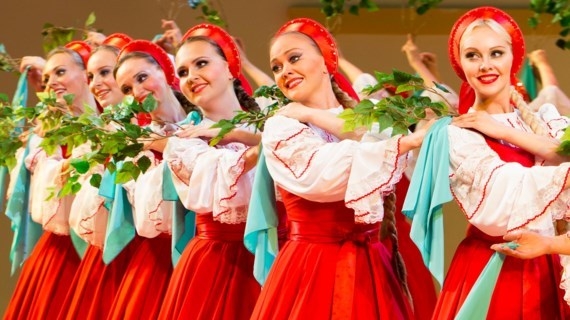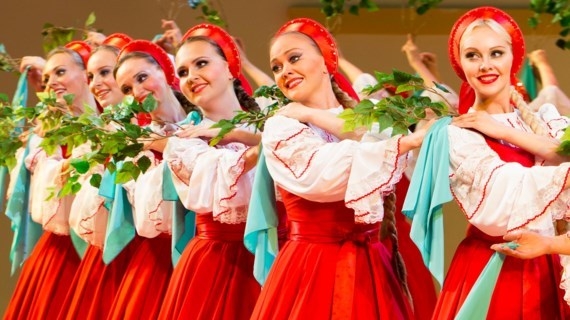



|
Co-organised
by the Vietnam Performing Arts Centre, under the sponsorship of the Ministry
of Culture, Sports and Tourism, the Vietnam National Academy of Music (VNAM),
the Embassy of Russia in Vietnam and the Russian Center of Science and
Culture in Hanoi, the event will be part of the Russian Cultural Days in Vietnam
in 2017.
The group
will perform at the Hanoi Opera House on October 5 and at the VNAM and Ho Chi
Minh Opera House on October 6.
The
Beryozka ensemble was founded in 1948 by choreographer Nadezhda Nadezhdina
and in 1959, the ensemble was awarded with the Joliot-Curie Gold Medal by the
World Peace Council.
The group
has traveled to over 80 countries in order to perform, such as the US, Japan,
France, the Republic of Korea, Colombia, Argentina, Chile, Venezuela, China,
Italy, Turkey, Croatia, Serbia, Poland, Greece, Egypt, Belgium, Switzerland,
Vietnam and more.
|